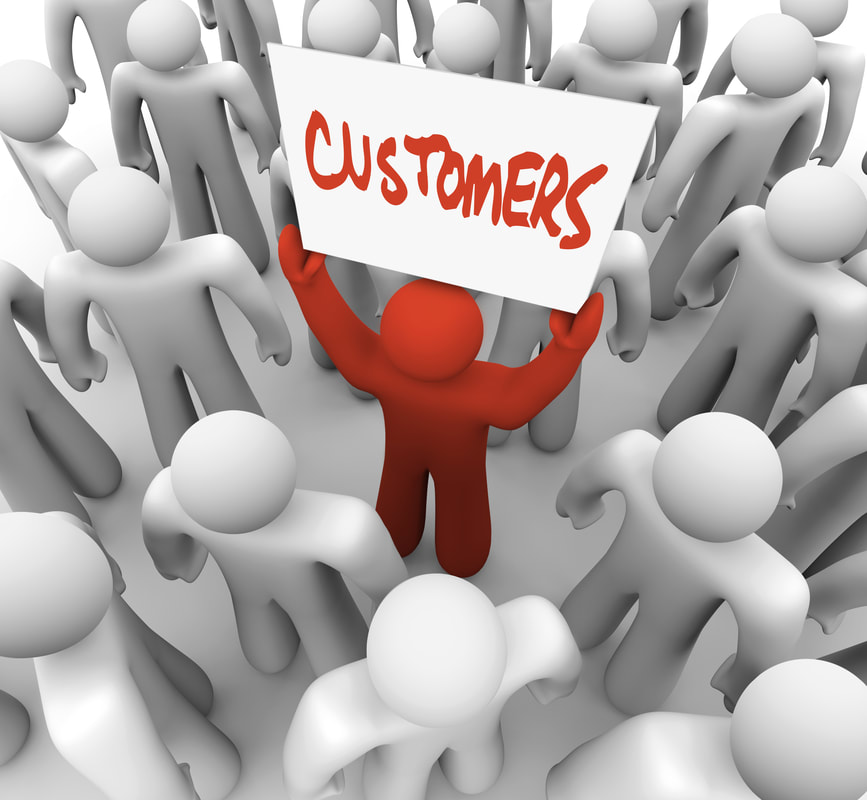
Written by The Melotti Content Media Team, checked by Christopher Melotti
Businesses need customers. B2B, B2C or both – customers provide the interest, attention, support and, most importantly, dollars you need to survive.
This is why it’s important to know exactly who you’re targeting because trying for “everyone” is not the best strategy.
Focusing your marketing efforts on the audiences who provide the greatest value is a smarter move, especially if you’re not a big corporation with an unlimited marketing budget.
But can you define them? Do you know who they really are?
It’s very common today for businesses to not actually know their customer types well enough and make a lot of assumptions that lead to costly mistakes.
To help, here is a guide on how to define your ideal customers.
Who are your ideal customers?
How do you define your target customer? Your ideal customers are people or organisations you want to target with your marketing and promotions because your products and services meet their wants and needs.
It’s very common today for businesses to not know their customer types and make a lot of assumptions that lead to costly mistakes.
Ideal customers can be defined as those who:
- are willing to spend money on your products and services.
- appreciate what you do as a brand.
- are easy to attract.
- openly communicate with your business.
- can be loyal to your brand.
- can recommend you to others.
It’s important to have a VERY clear picture of your target audience, so you can understand how to attract and serve them. In marketing, this is known as Marketing Segmentation.
Having “buyer personas” will help identify your ideal customers more distinctly.
Of course, defining your ideal customer doesn’t mean you are excluding others who might purchase from you – it just means you’re putting emphasis on attracting buyers who are most favourable and who have the most potential of becoming loyal, recurring advocates.
To learn more, see: How To Learn About Your Customers: 8 Ways To Gain The Most Insight About Your Audience
What are buyer personas?
Buyer personas (or customer personas) are defined as fictional representations of your ideal customers.
They allow you to cater more effectively to your current and potential customers by understanding their specific needs, concerns and behaviours.
Depending on your brand, your business can have one or more personas.
The strongest and most accurate buyer personas are based on market research and gathered from actual customer insights.
Why is it important to have customer personas?
Personalising your marketing for each audience segment is the main purpose of having personas. With these buyer personas, you can nurture your ideal customers by providing them with content that appeals to them. By paying more attention to those who are aligned with your products, you can ensure that the effort you invest will earn a better return on marketing investment.
For more, read: 5 Ways To Create Captivating Content For Your Precious Audience
10 ways how to identify your customer
To help your business find its true differentiator and strategise its marketing effectively, you must first narrow down and define your buyer personas.
No business has ever regretted defining their customer segments. The more you do this, the better your marketing will be.
Coming up with a customer persona is easy (and very worth it).
Just follow this guide by answering the necessary questions that will help you get a clear understanding of your target audience:
1. Background – (Job? Career path? Family?)
What type of industry does this person belong to and what is their job title? As this can affect how they make decisions, it’s also valuable to know their family setting.
2. Demographics – (Male or female? Age? Income? Location?)
Knowing your ideal customer’s age, sex, income and location can help you tailor your offering more effectively.
3. Identifiers – (Demeanours? Communication preferences?)
Understanding your customer persona’s interests and what triggers them can provide more relevant insights about where to advertise, allowing you to influence them better.
4. Goals – (Primary Goal? Secondary goals?)
You can position your products and services in the best way when you know what their objectives are.
5. Challenges – (Primary Challenge? Secondary challenge?)
Remember that it’s always your mission to solve your customer’s problems and make their life easier. So, knowing their pain points can help you address them.
6. What can we do? – (How can you solve their challenges and help them attain their goals?)
In what way can you support your ideal customer? How will your brand improve their life?
7. Real quotes – (how do they talk?)
To put yourselves in the shoes of your ideal customer, imagine what they may say about their goals, challenges and needs.
8. Common objections – (Why wouldn’t they buy from you?)
Seeing what makes them hesitant about buying your products and services will help you address their concerns and refute their objections.
9. Marketing messaging – (How should you describe your solution?)
In what way can you effectively communicate to your ideal customer that you have the best solution for their pain points? Keep in mind that having the appropriate message marketing strategy will help your target customer find your value.
See: How To Develop A Marketing Message Strategy For Your Brand
10. Elevator pitch – (How would you sell it to them?)
It’s time to sell your solution! Craft the best approach to tell your ideal customer what your products and services are, how these can help them and why must they choose your business over competitors.
If you’re new to personas, you can always start small and develop more later if the need arises. Just don’t forget to give them a name so you know what marketing you’re assigning to whom.
It’s your business’ turn to define your customer!
Improving your overall marketing is the key to ensuring the success of your business.
This starts with defining your ideal customers first and gaining their trust by crafting content that is personalised for them.
If you need professional assistance in developing your buyer personas and coming up with the right types of content, remember that you can always rely on freelance copywriting experts to help you out.
How can Melotti Content Media help you?
We understand that you want to deliver the right content to the right people. However, you may find that you’re time-poor and spread thin or you still have a lot of unanswered questions. You don’t need to worry!
At Melotti Content Media, we can assist with all your message marketing and copywriting needs while you focus on what matters most to you – growing your business.
Let’s start earning the results your business deserves!
To speak to your trusted message marketers and copywriters, email us at enquire@melottimedia.com.au or phone 1800 663 342.
We can sharpen your words to achieve your goals today!
The Melotti Content Media Team
Melotti Content Media | Copywriting & Message Marketing Bureau













